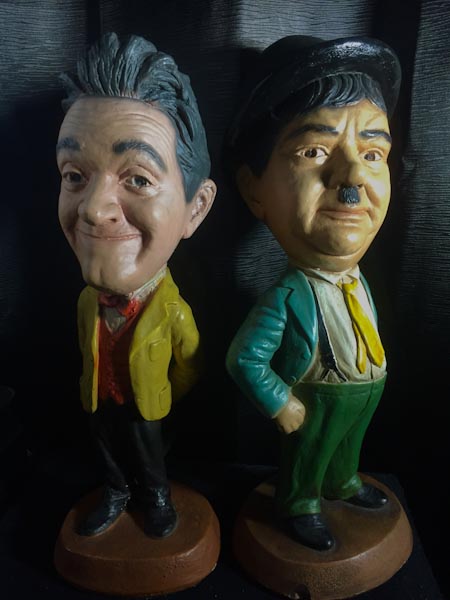A comparison of two iconic film friendships.
Rated X. Most cinemas would not screen X-rated films, talk shows would not allow guests on to promote it, and publications would not advertise them. If that wasn’t enough, the trend with films in the ‘60s, for the most part, was glossy, idealized pictures. With an honest portrayal of crime-ridden New York and topics covering homosexuality, drug use, prostitution, and criticism of The American Dream; Midnight Cowboy was an atomic bomb of controversy that exploded onto the scene.
The film went on to win Best Picture, Best Director, and Best Screenplay at the Academy Awards, being the only X-rated film to ever win an Oscar. Since then, whenever the film is reviewed, discussed, or even mentioned, the main topic is the controversy caused, rather than the picture itself. But the reason why the controversy is even remembered, is because the timeless and moving relationship that is built between Joe Buck and Enrico “Ratso” Rizzo.
Doe-eyed, Texas dishwasher, Joe Buck (Jon Voight) migrates to Manhattan with visions of a utopia that is filled with wealthy, lonely women who need companionship. Not only does Joe fancy himself a handsome cowboy, but also a ruthless hustler. As soon as he arrives in New York he realizes two things; everything costs money and everyone is hustling. By chance, Joe meets a seasoned conman, Enrico (Dustin Hoffman), who promises to introduce him to a manager of an escort service. This encounter ends with Enrico conning Joe out of wallet and vanishing.
After a second run in, the pair begin an unlikely friendship. At this point Joe just wants a place to live and something to eat that isn’t the free saltines in the automat. Enrico invites him to stay in the condemned building he loiters in. With the strong, conventionally handsome, yet dimwitted Joe Buck and the scrawny, limping, clever conman, the two make a perfect pair to pull scams. Their goal is to get Joe into the escorting business and save money to move to sunny Florida.
The film is powerful in its bleak depiction of New York at the time and the inhabitants in it. But the film is immensely moving in showing the relationship between the conned and the conman, realizing that they are one in the same. Both are alone, all friends and families have died or absconded. Both are outcasts, society seems to not only be against them, but punishing them at every turn. Both are lost and without identities. Finally, both have delusions about a better life, Joe with New York and Enrico with Florida.
At times they both act as a bullying older brother and a nurturing mother to each other. Enrico offers Joe a place to stay, cooks his meals, washes his clothes, cuts his hair, polishes his shoes, and steals an overcoat to keep him warm. Joe is very protective over Enrico, stepping up to anyone who wants to pick on him. As Enrico grows sick, the roles reverse and Joe is the one feeding Enrico, clothing him, helping him walk, and even selling his blood to purchase medicine to ail his ever-deteriorating friend. The most revealing point is when Joe abandons all his morals, beating a would-be john senseless, before stealing his money to get Enrico to Florida.
The best way to illustrate why this friendship is the main draw of the film, even if it is hardly given a word in discussion, is to move from the realistic, gritty, “no one under 17 permitted” controversy of the ‘60s; and to the Classical Hollywood era with the heightened, comical, and family-friendly partnership of Stan Laurel and Oliver Hardy. Their comedy was based in visual gags and violence, all being very cartoonish and outlandish. The iconic duo appeared in over 100 films and are commonly referred to as the greatest comedic duo of all time by comedians and film historians alike.

Laurel & Hardy had stringent roles; Laurel being the bumbling, child-like counterpart to Hardy’s arrogant bully. Their foolishness constantly gets them in various types of trouble and danger. Despite the constant bickering, fighting, and carrying on; the seemingly opposite characters are inseparable. No matter what Laurel gets Hardy into, or vice-versa, they stick by each other and fight back against anyone who singles them out or doesn’t understand them—which is everyone in their pictures. In The Flying Deuces, their behavior causes them to be court-martialed as deserters. This, in the almost inevitable fashion, leads to Laurel & Hardy stealing a plane and eventually crashing with Hardy perishing in the crash. Hardy is reincarnated as a horse, to which Laurel leads away as the credits roll. Looking past the humor and into the subtext, one could naturally assume that their friendship goes beyond death.
While it is not readily apparent if Joe Buck and Enrico Rizzo’s relationship goes beyond death, the comparisons to Laurel & Hardy’s relationship are apparent. In each of the partnerships, both play the role of caretaker to their respective partners, they both con people together, they stick together through the hardest of times, and they both have the delusions about an easy way to a better life. Both relationships also, technically, started with one robbing the other. A few years before they would officially become a duo, Laurel & Hardy starred in The Lucky Dog, where Hardy played the heavy of the picture, robbing and menacing the dopey Laurel.
While various sources proclaim the brilliance of the duo, I believe two summarize their charm perfectly; “That’s really the appeal of Laurel & Hardy, generation after generation keep watching because of their friendship. They give that feeling that no matter what, you’ve got someone beside you.” film historian Wolfgang Günther said. Even though Laurel & Hardy’s partnership ended in 1957, due to Hardy’s passing, it was not until Stan Laurel’s death in 1965 that famed comedian Jerry Lewis said, “Now that he’s gone, selfishly, I feel robbed. Robbed of their light and what they stood for.”
While these sources talk specifically about Laurel & Hardy, their meanings are easily applicable to Joe and Enrico’s relationship. Although there are only few moments of dark humor when it comes to Joe and Enrico’s situation, they equally represent that inseparable, concrete symbol of friendship. It is only because of the major controversy caused by Midnight Cowboy that its viewers are blinded to the intense emotions involved in the protagonists’ relationship. Midnight Cowboy is best viewed with the blanket of controversy removed and keeping in mind a quote that Hardy once told Laurel, “Do you realize that after I’m gone, that you’ll just go on living by yourself?”

